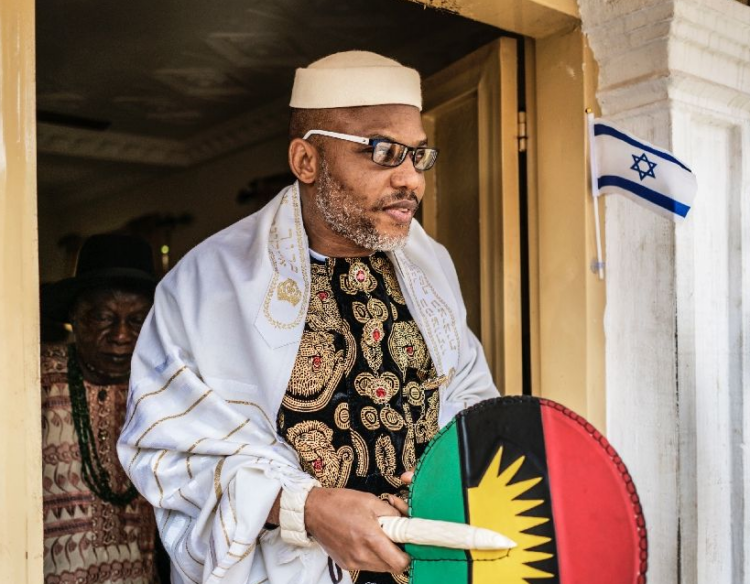President Muhammadu Buhari has turned down the request by Ohanaeze N’Digbo to release leader of the Indigenous People of Biafra (IPOB), Nnamdi Kanu, from detention.
Buhari on Friday while rounding up his two-day working visit to Ebonyi State said Kanu must defend himself in court.
The president was speaking in a town hall meeting with South East traditional, religious and political leaders in Abakaliki, Ebonyi State.
It would be the second time the President would be reiterating this stand. One was when shades of different leaders from the East visited the Villa some months back.
The South East leaders at the visit pleaded with Buhari to release Kanu by deploying political solution in resolving his trial bothering on treasonable felony and terrorism, offences he allegedly committed in the course of his separatist campaigns.
Senior Special Adviser on Media to the president, Femi Adesina, said in a statement that Buhari is worried over the deteriorating security situation in the region, reiterating his directive to security agencies to ‘‘flush out’’ those perpetrating violence in the land.
Buhari told the Igbo leaders that the federal government would deploy its strength to protect innocent and hardworking Nigerians from terrorists and those causing a breakdown of law and order in the South East region.
According to the President, ‘‘I have listened carefully to the various appeals from the elders to the traditional leaders regarding a wide range of options, and as I said previously that this matter remained in the full purview of the courts, where it will be properly adjudicated.
‘‘My worry is for our hardworking and innocent civilians, for whom life is already tough and would like to earn a decent and honest living. There are many that fit this profile, and the government owes them that obligation to protect lives and property.
‘‘I will once again repeat that no one has the right to carry an AK-47, and anyone seen in any part of the country doing so and is not a law enforcement officer is a threat to our peaceful coexistence and should be treated as such.”









